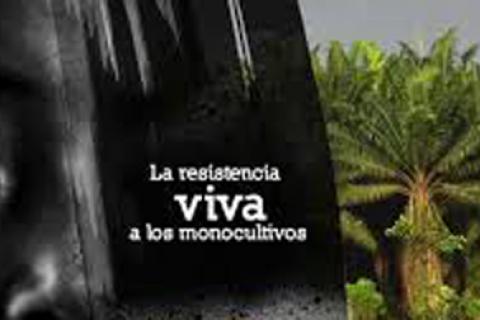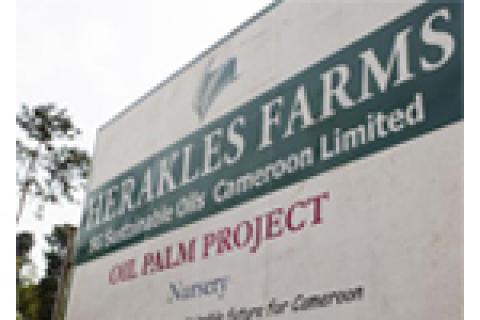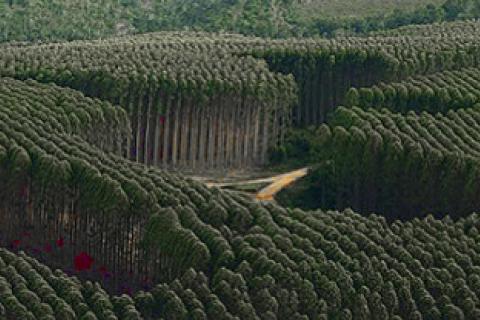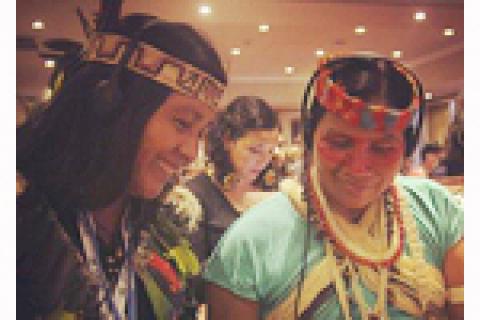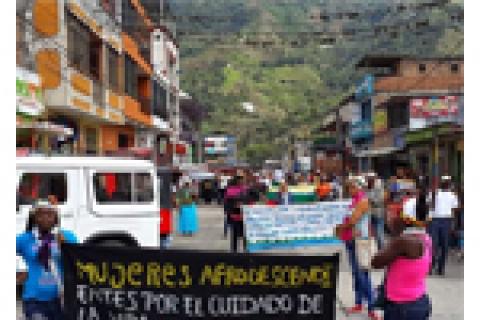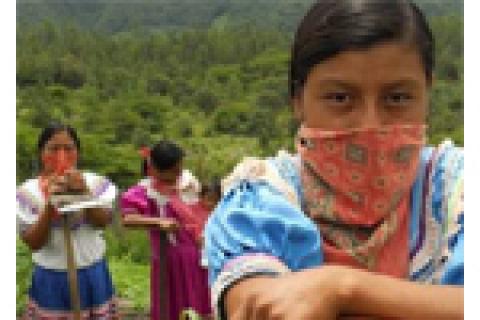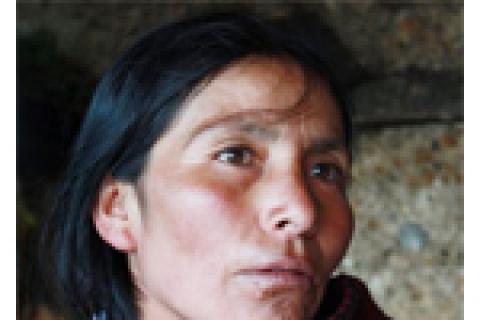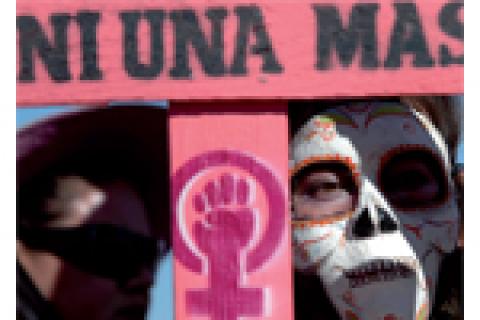Other information
Aljazeera’s People and Power TV program released a video on the social and environmental consequences of oil palm plantations in Cameroon, where the government has been trying to attract the palm oil industry by offering a number of incentives.
Decision made in violation of national law and international protocols
March 8, International Women’s Day, is also the launch date of the World March of Women’s (WMW) Fourth International Action. The World March of Women takes place every five years and through it, feminist organizations from every continent give voice to their struggles and demands. The Action is decentralized and comprises demonstrations, street actions, workshops, training events and other activities that will last until October 17.
On December 8, 2014, a group of extraordinary women leaders gathered in Lima, Peru during the UN climate negotiations to speak out against issues of social and ecological injustice, and to share stories and plans of action for building a liveable, equitable world. Indigenous women from different places shared their experiences and struggles.
Radio Mundo Real produced a special program on caring for Nature, highlighting the voices of women from different Latin American organizations who participated in the ANAMURI congress.
Listen to the program (in Spanish) at:
http://radiomundoreal.fm/8114-la-tierra-es-madre
An article by Charo Rojas, Marilyn Machado, Patricia Botero and Arturo Escobar charts the cumulative processes that have infringed the rights of Afro-descendant populations and destroyed their territories. These processes, they say, are of such magnitude that they may be regarded as crimes against humanity, ecocide and ethnocide.
The video by Radio Mundo Real on Financialization of Nature was produced in collaboration with the Biodiversity Alliance, Friends of the Earth Latin America and the Caribbean and the World Rainforest Movement. The video attempts to explain what financialization of nature is, what mechanisms it employs, what it does in the territories, its impacts and the resistance it generates.
The international network of peasants, La Via Campesina, calls for the coordination of actions during the International Women’s Day to highlight the fundamental role played by women in guaranteeing Food Sovereignty. On this day of struggle, it denounces the prevailing violence, against women specifically, because the agribusiness model, patriarchy and the capitalist interests in the countryside have exacerbated social and gender inequalities.
When mining and logging companies come to villages asking for resource rights, how can communities make an informed decision without truly understanding all the impacts that these activities entail? Moira Dasipio, 55, lives and works in the Isabel Province of the Salomon Islands and is determined to give local populations access to more information about large-scale projects.
Máxima Acuña, a mother of four in the northern Andes of Peru who was never able to learn to read or write, won a lawsuit against the Yanacocha mining company, South America’s leading gold producer. In spite of this, the company has continued its violent intimidation against her. So far in 2015, Máxima has been threatened at least twice by police and agents for Securitas, Yanacocha’s private security firm, entered her property. On February 12, a World Day of Solidarity with Máxima was held.
El Salvador has the highest rate of femicide in the world, Guatemala the third and Honduras the seventh. In Guatemala and Honduras only 2% of murdered women’s cases were investigated in 2013. And in El Salvador, in 2014 alone, between January and October, over 300 women between the ages of 12 and 18 years were found in unmarked mass graves. The victims of femicide often show signs of torture, rape, or breast and genital mutilation and dismembered body parts.
